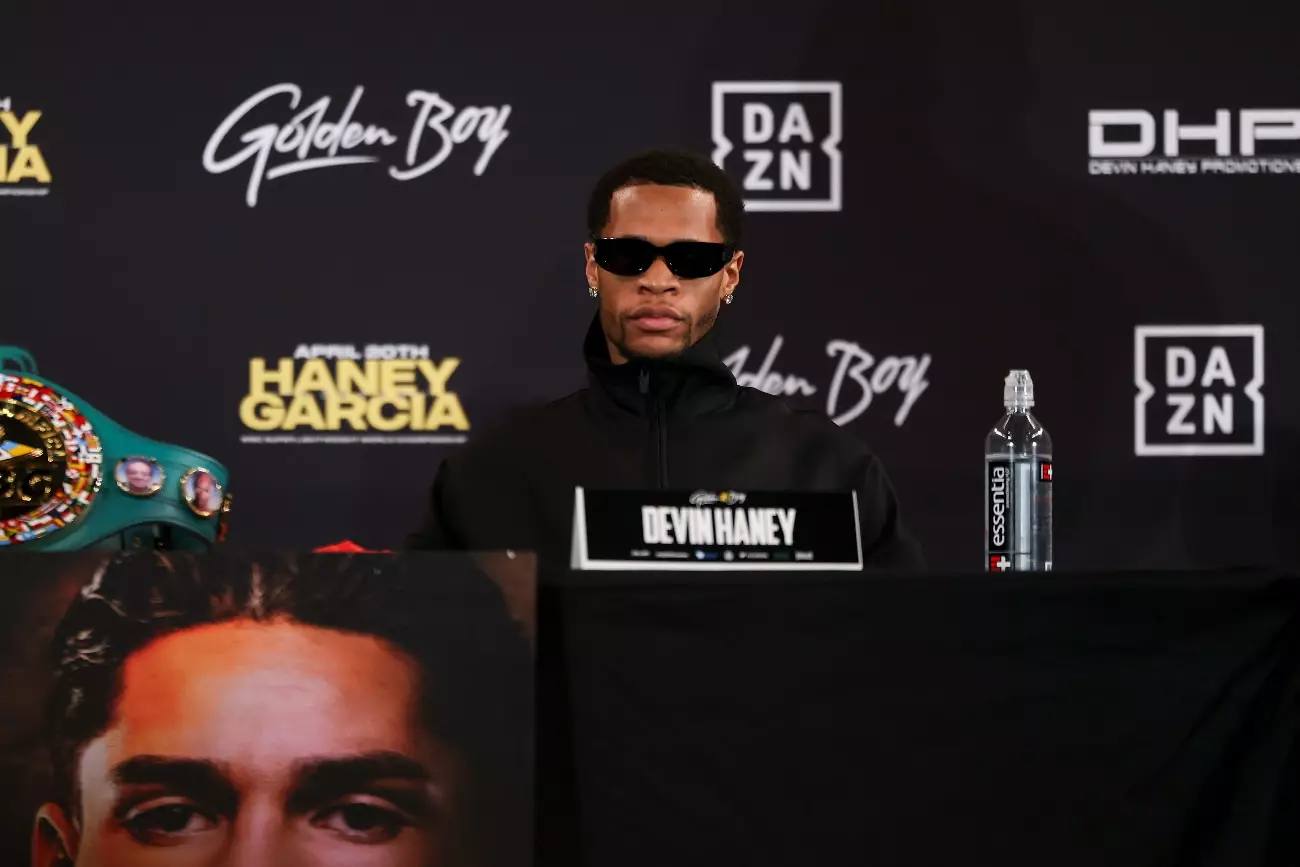Boxing, a sport revered for its rich history and the incredible feats of its athletes, has been marred by controversies surrounding performance-enhancing drugs (PEDs). In recent years, there has been an alarming increase in high-profile fighters testing positive for banned substances. Fans, fighters, promoters, and analysts have expressed growing frustration over the integrity of the sport, calling for more rigorous drug testing measures throughout the boxing community. In an industry often plagued by scandals, the recent move by Devin Haney to join a year-round testing program offers a glimmer of hope that the tide may be turning toward a cleaner, fairer environment for all athletes.
Devin Haney’s Pioneering Initiative
Devin Haney, a well-respected boxer and former champion in two weight classes, has made headlines by becoming the first athlete to enroll in the Voluntary Anti-Doping Association (VADA)’s comprehensive drug-testing program. This initiative extends a full year, from now until January 2, 2026, and will include random testing throughout the calendar year, irrespective of whether Haney is actively training for a fight. His decision signifies a strong commitment to transparency and honesty in a sport that has repeatedly found itself on shaky ground concerning doping allegations.
Haney’s career has been significantly impacted by drug testing scandals, most notably his recent fight against Ryan Garcia, which was transformed from a decision loss to a no contest after it was revealed that Garcia had tested positive for Ostarine, a banned substance. The controversy surrounding this incident pushed Haney to not only file a lawsuit against Garcia—alleging battery and fraud—but also prompted him to take proactive steps to restore some credibility to the sport. By participating in VADA’s program, Haney is setting an example, encouraging other fighters to follow suit and ensure they’re competing on a level playing field.
Haney’s initiative has garnered mixed reactions from various sectors of boxing. The fact that he has taken such significant steps toward ensuring his clean image in the ring is commendable, and many fans and fellow fighters applaud his resolve. The boxing community has already seen numerous instances of fighters getting sidelined due to doping violations, leading to rampant skepticism within fan circles. Haney’s involvement in VADA could serve as a catalyst for changing perceptions and encouraging a culture of accountability and clean competition.
However, a critical aspect remains: the willingness of other fighters to embrace such a radical policy of continuous testing. As history has shown, not all fighters are as open to the idea of random drug tests as Haney. While there are certainly those in the sport who are committed to competing cleanly, the pressure of competition, sponsorships, and the overwhelming desire to win can deter athletes from taking the ethical path. The question arises: will Haney’s bold move influence the likes of other renowned boxers?
For Haney, the aim is undeniably clear: he wants to demonstrate that an untainted boxing experience is not just a utopian dream but a feasible reality. His remarkable record of 31 wins, 0 losses, and 1 no-contest speaks volumes about his skills as a fighter; pairing that with an unblemished performance-enhancing drug record could solidify his reputation as a true champion. The stakes are particularly high in light of the anticipation building around a possible rematch with Garcia; this potential bout could serve as a litmus test for VADA’s influence within boxing.
If Haney can actively promote the benefits of strict drug testing to other athletes, the potential for reform in boxing is immense. VADA’s model can serve as an archetype that other sporting organizations might consider. The effectiveness of this program could reverberate not just in the realm of boxing but throughout competitive sports generally, where drug abuse continues to be a grim reality affecting the integrity of competition.
Devin Haney’s landmark decision to sign up for year-round drug testing stands as a beacon of hope for the sport of boxing. His commitment to integrity serves as a challenge to other fighters to step up and take responsibility for their actions in the ring. As the sport grapples with the ongoing issue of doping, Haney’s proactive approach symbolizes a potential turning point that could redefine the landscape of boxing for future generations. If successful, this movement towards enhanced testing could foster a renewed sense of confidence among fans and participants alike, affirming that the essence of boxing—honor, skill, and respect—can indeed be revived.


Leave a Reply